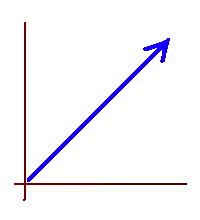Think about what you can do, not what you "have to" do
Very often students seem to freeze when they see some kind of problem. In this situations I ask: "What are you thinking? What is going through your mind right now? What thoughts, feelings or ideas do you have when you read this problem?" By asking this types of questions repeatedly, I have discovered that, in many cases, when students find a particular kind of problem (the exact type varies from student to student), they think they are supposed to follow some steps, some fixed routine they were taught at some point in the past by one of their teachers. The problem is now they don't remember what are those steps they think they have to follow, and more importantly, in most cases they never totally understood the reasons why those steps work.
They typically give me answers like:
"Well, I think I have to multiply these two numbers, but I am not sure..."
"Ah, I need to add these fractions, but I don't know how..."
"I forgot what formula I have to use for this problem..."
"I am supposed to set up an equation, right? But how?"
The key words these answers have in common are verbal forms like: "I have to," "I need to," "I am supposed to," etcetera. They really think there is something very specific they have to do, and they just don't know what that is.
When I spot this blockage I say: "You don't have to do anything!" They look at me and they go: "I don't?" They look quite surprised but relieved at the same time. Then I say:
"No, you don't have to do anything. You don't even have to solve the problem. I mean, you want to solve the problem because you want to pass your test, right? But you don't have to, you want to. Now, to solve the problem, you can do that by going whatever way it works. Nobody is going to be looking over your shoulder to see how you do it. It's a multiple choice question. Nobody cares how you do it. The only thing that counts is whether your final answer is right or wrong, right?"
After I make my point clear, they usually ask: "But, then, how can I solve it? What can I do?" And I say: "Exactly! Perfect! That is the right question. What can you do? Well, what do we have? Look at the problem, look at the numbers, look at those expressions. What can we do?" Then all of a sudden they go: "Oh! I can take the 50 out on both sides, then I can substitute this variable for that other formula!" or whatever the case may be, but they start working their way to the solution.
The words we choose to talk to ourselves make a big difference. When students think in terms of "I have to," "I need to," "I am supposed to," those words take them to a mental and emotional state where they were just going through the motions and mechanically repeated meaningless tasks they didn't understand and they didn't care about.
If instead they think about their possibilities, their options, about what they can do, then it's much more likely they will find the clarity, creativity and initiative that will lead them to finding the right solution by themselves.
Interesting categories are big
-
One of the things I found off-putting about category theory when I was
first exposed to it was its reliance on the notion of “collections” that
are not s...
14 hours ago





1 comment:
Your blogs nice!. Am an undergraduate student from India and i've been teaching for a while. I can relate to what u r saying !
Post a Comment